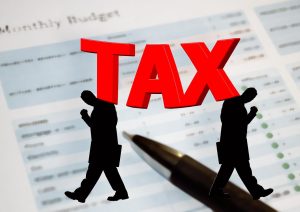Let’s face it: property taxes can feel like a confusing maze. Whether you’re a homeowner or planning to buy, understanding how property taxes work is essential. Misconceptions often lead to frustration, missed opportunities, or even overpaying. Let’s clear up some of the most common myths about property taxes and help you stay informed.
Misconception 1: Property Tax Assessments Are Always Accurate
Many people assume their property tax assessment is spot-on, but here’s the reality: mistakes happen. Assessors rely on data about your property—like square footage, location, and recent sales of similar homes—but inaccuracies can slip through. Maybe an outdated remodel or an incorrect lot size is inflating your bill. This is why it’s crucial to review your assessment regularly.
Did you know you can challenge your property tax assessment if you believe it’s incorrect? Check out Abode Property Tax Appeal resources, which help homeowners navigate the appeals process, potentially saving them significant money. Whether it’s uncovering errors or ensuring your property is valued fairly, taking a second look could make a big difference.
Misconception 2: Property Taxes Are Fixed Forever
If you think your property taxes will stay the same year after year, you might be in for a surprise. Tax rates often change due to local government budgets, school funding needs, or infrastructure projects. Additionally, if your property’s value increases (or decreases), your tax bill will likely adjust accordingly. For example, major renovations like adding a deck or finishing a basement could bump your home’s assessed value and, in turn, your taxes.
However, tax reductions can happen too. Some areas offer exemptions or reductions for seniors, veterans, or energy-efficient upgrades. Always check with your local assessor’s office to see if you qualify for any programs.
Misconception 3: You Only Pay Property Taxes Once a Year
Property taxes aren’t always a single annual payment. Depending on where you live, payments may be split into installments—biannually, quarterly, or even monthly. If you have a mortgage, your lender likely collects property taxes as part of your monthly mortgage payment. This means you’re paying little by little into an escrow account, and your lender sends the payment directly to the tax office when it’s due.
It’s worth double-checking that your escrow account balances match your actual tax obligations. Occasionally, lenders overestimate (or underestimate) the amount needed, which could lead to unexpected adjustments in your mortgage payment.
Misconception 4: Higher Property Taxes Mean Better Services
While property taxes fund critical local services—schools, public safety, parks, and roads—higher taxes don’t always guarantee better services. The quality of services depends on how efficiently local governments allocate those funds. Two neighboring areas might have similar tax rates but vastly different service quality based on budget priorities and management.
When comparing neighborhoods or considering a move, look beyond the tax rate. Investigate how funds are used. Are schools well-rated? Do roads and public spaces appear well-maintained? These factors often provide better insights than simply focusing on the tax bill.
Misconception 5: Property Taxes Are the Same Everywhere
Property taxes vary significantly depending on location. States, counties, and municipalities set their own rates, which means moving a few miles could drastically change your tax obligations. For example, urban areas with higher property values and dense populations often have steeper taxes than rural areas.
Additionally, some states rely more heavily on property taxes than others. It’s a good idea to research tax rates before buying property, especially if you’re relocating. Websites like your local county assessor’s page can provide clarity on what to expect.
Misconception 6: New Homeowners Automatically Get the Same Tax Rate as Previous Owners
If you’re buying a home, don’t assume you’ll inherit the seller’s tax bill. In many areas, a home’s assessed value is reset to its sale price when it changes hands. This can lead to significant increases in property taxes for new owners, especially if the previous owner held the property for decades during a time of rising home values.
It’s always smart to ask about property taxes during the home-buying process. Some real estate listings include estimated tax rates, but a conversation with the seller or your agent can give you a clearer picture of what to expect.
Misconception 7: You Can’t Lower Your Property Taxes
Many homeowners believe their property tax bill is set in stone, but there are ways to reduce it. The appeals process allows you to contest your property’s assessed value if you think it’s too high. Often, homeowners successfully lower their taxes by presenting evidence of overvaluation, such as recent comparable sales or highlighting errors in the property record.
Additionally, look into exemptions or deductions. Some states offer programs for specific groups like seniors, disabled individuals, or farmers. Even small reductions can add up over time, so it’s worth exploring all options.
Your Tax Bill Isn’t Set in Stone
Understanding property taxes might not be the most thrilling part of homeownership, but knowing the facts can save you money and stress. Whether it’s disputing an unfair assessment, keeping track of rate changes, or knowing how local taxes support your community, staying informed puts you in control. A little extra effort can make a significant difference—and might even trim down your next tax bill.





Leave a Reply